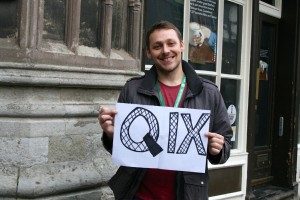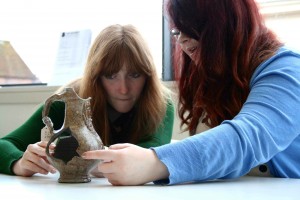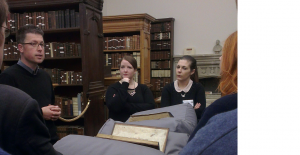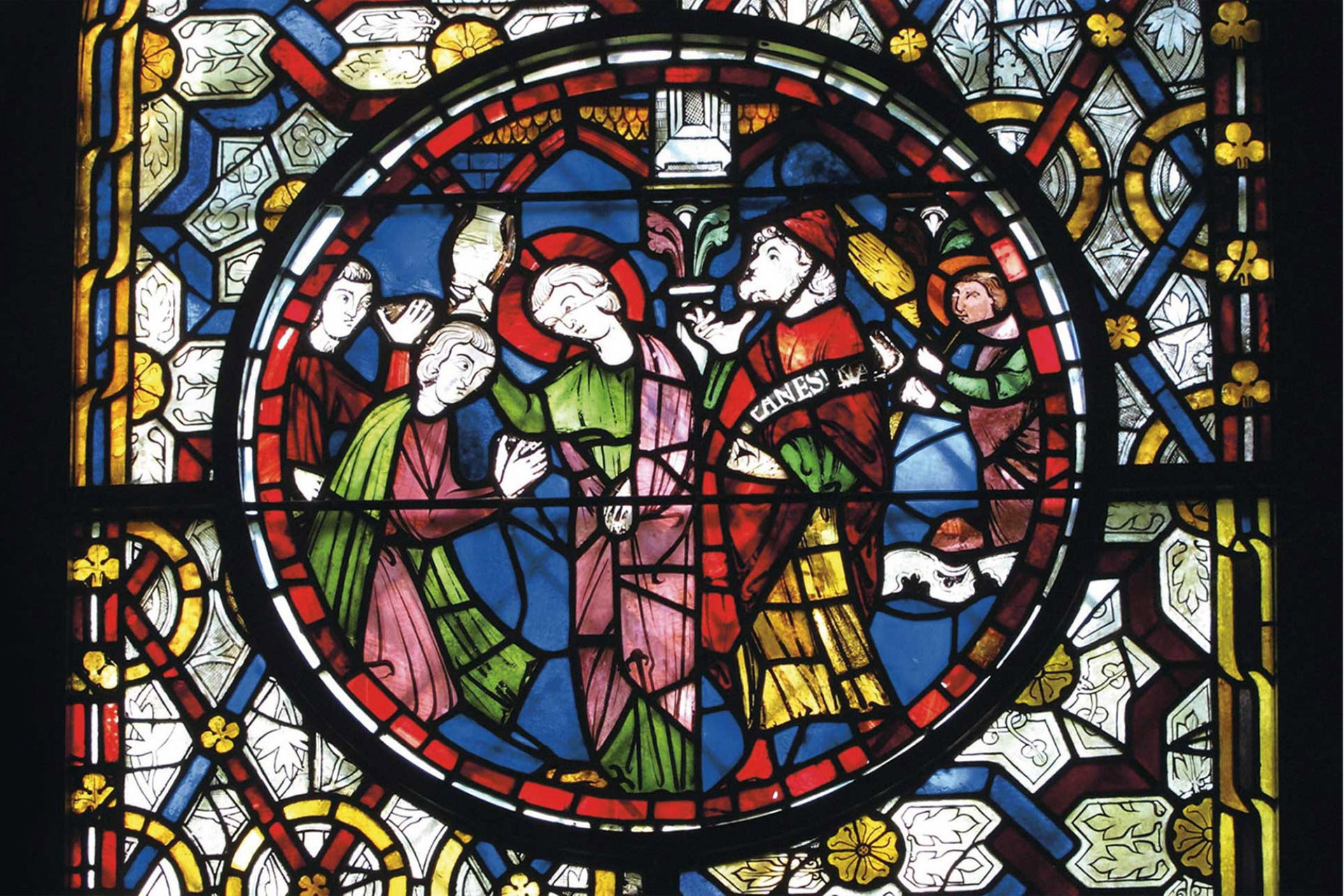Between the 7th and 9th of November the Centre for Early Modern and Medieval Studies(with the support of the Schools of English and History) hosted the prestigious Quadrivium postgraduate training event for the first time.

The conference attracted students from across the U.K. with postgraduates from York, Glasgow, Queen’s University of Belfast, Leicester and Birmingham (Universities that have all previously hosted Quadrivium) and also welcomed delegates from Oxford, Cambridge and the University of Wales.
The theme for the ninth Quadrivium in Kent was ‘Bridging the Gap’, something that reflected both the attempt to bridge Medieval and Early Modern scholarly interests, and also the idea of ‘bridging the gap’ between the PhD and a career, whether in academia or beyond. The event was marked by the generous contribution of MEMS staff to a range of sessions in combination with other academics and specialists.
In terms of career-based training, delegates attended workshops on CV-writing with Harry Newman (MEMS); interview and presentation techniques with Clare Wright (MEMS), Jeremy Smith (University of Glasgow) and Orietta da Rold (Cambridge University); a session on research projects and the role of the PDRA with Ryan Perry and Huw Grange (MEMS), as well as a session on publishing with Linda Bree from Cambridge University Press and our own Tony Edwards.
 There was a diverse range of other workshops that highlighted some of the scholarship particular to MEMS in the University of Kent and the unique historical and literary heritage of Canterbury, with sessions on material culture with Catherine Richardson (MEMS) in The Beaney centre, a teaching historical drama workshop with Steve Purcell and The Pantaloons, Cathedral tours with Alixe Bovey (MEMS), Kenneth Fincham (MEMS) and Canon Christopher Irvine, as well as sessions in the Cathedral Library and archives with David Grummitt (MEMS), Cressida Williams and Karen Brayshaw (Cathedral Library and Archives) and Erik Kwakkel of Leiden University.
There was a diverse range of other workshops that highlighted some of the scholarship particular to MEMS in the University of Kent and the unique historical and literary heritage of Canterbury, with sessions on material culture with Catherine Richardson (MEMS) in The Beaney centre, a teaching historical drama workshop with Steve Purcell and The Pantaloons, Cathedral tours with Alixe Bovey (MEMS), Kenneth Fincham (MEMS) and Canon Christopher Irvine, as well as sessions in the Cathedral Library and archives with David Grummitt (MEMS), Cressida Williams and Karen Brayshaw (Cathedral Library and Archives) and Erik Kwakkel of Leiden University.

Professor Kwakkel, or perhaps more appropriately @erik_kwakkel also provided the conference’s keynote speech, in which he discussed the use of social media to publicise manuscript and medieval studies.
One of the most important aspects of Quadrivium is that it gives the opportunity for postgraduates in the host institution to gain experience in organising a high profile conference and this year the responsibility fell to a team of MEMS PhD students. The committee this year was Silke Muylaert, Zoe Hudson, Tom Lawrence, Tamara Haddad, Jan Vandeburie, Stuart Palmer and Diane Heath. Testimony to their achievement was the fact that leaving delegates as well as those academics involved in numerous events all agreed that this was the most ambitious and successful Quadrivium yet. Quadrivium X is scheduled to take place in the University of Birmingham in November 2015.
By Dr Ryan Perry
